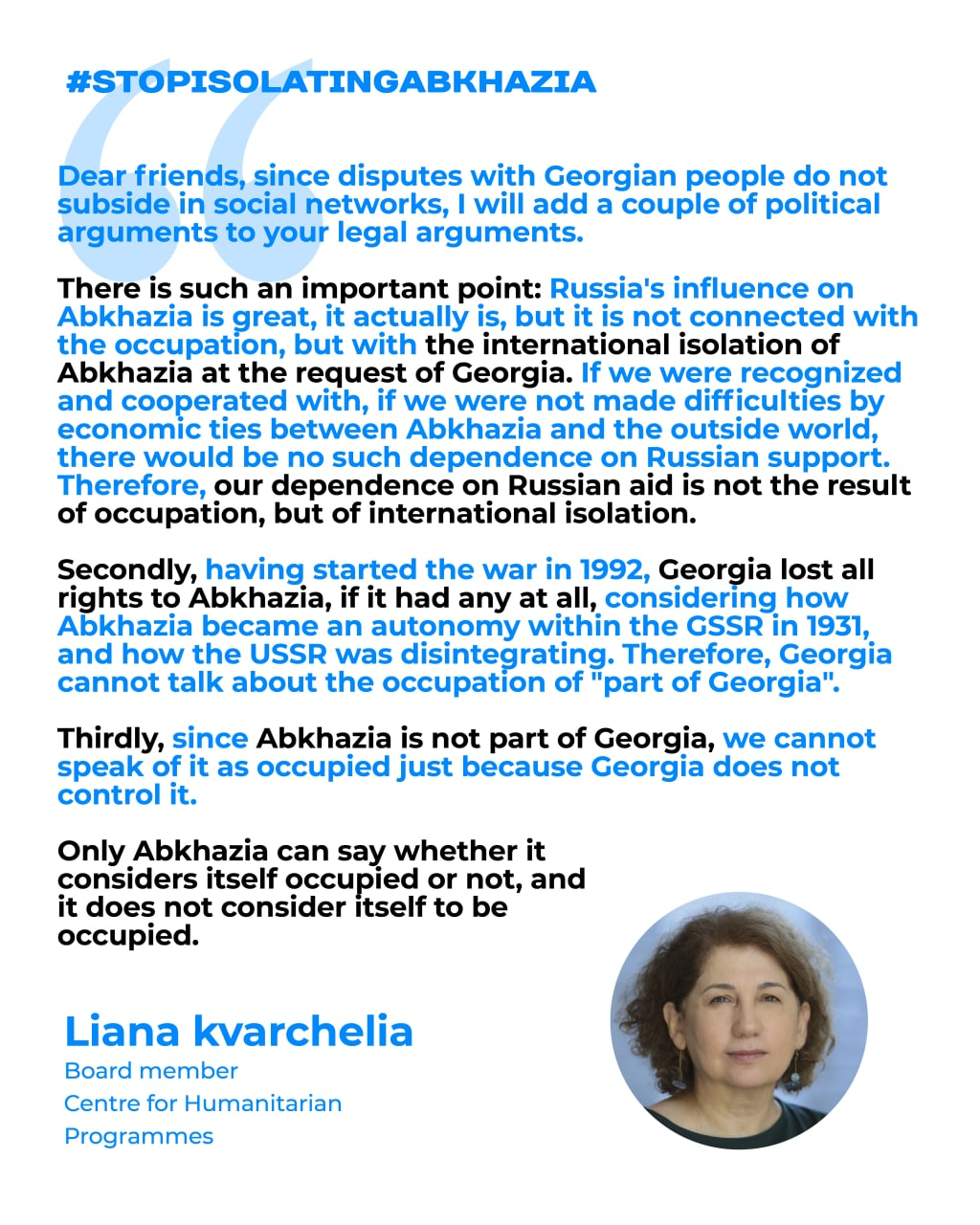The Abkhazian-Russian Cold War, by Tengiz Ablotia

Nation.ge ― Something unimaginable is happening in Abkhazia. Incredible, and at first glance, impossible.
Generally, in Georgia, the perceptions about Abkhazia are mostly superficial and incorrect. This is partly related to propaganda, which reinforces the idea that there is no Georgian-Abkhazian conflict and that everything in Abkhazia is decided by Russia.
"Och, who are the Apswas? – whatever Russia tells them, they’ll do it, ro they have no will of their own, and essentially, there is no Abkhazian nation; the Abkhazians are Georgians, whereas these are the Apswas" - This is the view that predominates among so-called "ordinary folk", whilst in the relatively modern and Europeanised segment, the thesis of Georgian propaganda about "our Abkhazian and Ossetian brothers" is echoed word for word.
All three narratives are completely detached from reality, but the aforementioned surprise is linked to one among them - Abkhazia's dependence on Russia.
Only someone who knows nothing about the Abkhazians could imagine that they are slaves to the Russians, doing everything the Kremlin commands. What is happening in Abkhazia today is completely contrary to this stereotype.
Using its financial, military, and political influence, Moscow is imposing a legislative package on the Abkhazians, which effectively turns Abkhazia into a part of Russia - first legally, then in practice. These laws are about the harmonisation of legal bases, mutual recognition of judicial decisions, the rights of Rosgvardia to operate in Abkhazia, apartments, and foreign agents.
None of these laws has been adopted to date; this package was initiated by Moscow almost 2 years ago and the receiver would have received quite some time ago. However, none is close to being adopted; currently, the parliament is considering a draft law about foreign agents, but the discussion is clearly being dragged out, and when it will become an official document is unknown.
+ Abkhazia: between the hammer and the anvil
+ The Hand of Moscow and the Sterility of Geneva, by Izida Chania
+ Another Day, Another EU Concern: The Unending Tale of Failed Conflict Resolutions
Russia got the Abkhazian parliament to accept a law on the transfer of Pitsunda’s dachas to Moscow. However, it turned out that the law was indeed adopted but in a castrated form - it prohibits the Russian government from privatising and selling the dachas. The Russian Ministry of Foreign Affairs issued an indignant statement to Abkhazia, demanding the withdrawal of these amendments. However, something surprising happened – the Constitutional Court of Abkhazia took the opposite decision, leaving this article unchanged.
Furthermore, 2 weeks ago, Abkhazia's Minister of Internal Affairs, Robert Kiut, declared his refusal to sign a conspiratorial agreement in connection with Rosgvardia - according to him, Abkhazia will not adopt this law because it violates its sovereignty. Abkhazians are facing the relentless Russian machine without excessive deference and fear, openly sabotaging the obligations taken upon themselves - as already said, almost none of the law projects initiated 2 years ago have been submitted to the parliament even for consideration.
What, what’s that you say – the Abkhazians don’t have their own opinion and are slaves to the Russians?! Just imagine for a moment if Georgia's government were in the hands of Alt-info, with K’ok’a Morghoshia or Zurab Makharadze as Prime Minister… All these laws would have been adopted prematurely, in advance of any time-limit. Which nation would have dared to do that which the Abkhazians are doing today?
Of course, the real problems still lie ahead - tomorrow or the day after, Russia will turn on all its pressure levers, and the Abkhazian nation will be on the verge of destruction, and it’s possible this open sabotage will cease.
However, what the Abkhazians are daring to do today truly deserves respect.
It still remains an open question, which nation is more "non-existent" – the Abkhazian or the Georgian?.......
This interview was published by NationGeorgia and is translated from Georgian.
